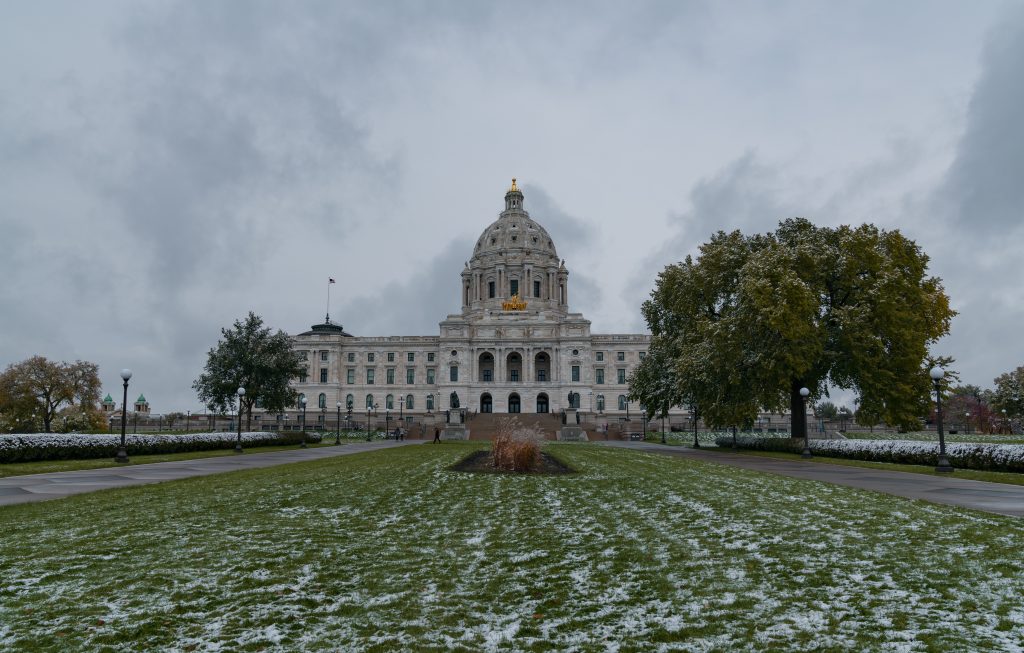The Minnesota State Capitol building in downtown Saint Paul, with snow on the ground during autumn. Photo by Tony Webster.
Minnesota House Democrats are proposing a $3.3 billion increase to state education funding over the next three years.
The sprawling package would use money from the state’s projected $9.3 billion budget surplus to boost spending on mental health, English language instruction and special education services, House DFL leaders announced Monday.
It comes just days after the Senate GOP released their education proposal, which calls for $30 million in new spending this year — leaving a $1 billion gulf between the House and Senate packages for fiscal year 2023 alone.
“It’s clear that the needs are great across our state, and we need to deliver for Minnesota’s students,” said House Speaker Melissa Hortman, DFL-Brooklyn Park.
During a news conference Monday, House Democrats said their bill would help students and schools recover from the disruptions of the pandemic, as well as narrow Minnesota’s worst-in-the-nation racial disparities in education.
The package includes $475 million to expand mental health programs and hire support staff like social workers, nurses and counselors based on enrollment, said Rep. Jim Davnie, DFL-Minneapolis, chair of the House Education Finance Committee.
More than $1.6 billion would go toward addressing funding shortfalls for special education and English language learner programs, known in education finance as “cross-subsidies.” This refers to the funding gaps that result from districts providing required services for students with disabilities or students learning English, for which they do not currently receive enough state or federal funds.
For individual school districts, these funding gaps can add up to millions of dollars. The special education funding gap in St. Paul Public Schools, for example, is roughly $46.6 million, or nearly $2,000 per student.
The House DFL plan would eliminate the English language learner funding gap by 2026, Davnie said.
The proposal also calls for spending $525 million to establish a statewide, voluntary preschool program for children in low-income families by creating pre-K slots in existing licensed child care centers, Head Start programs and schools.
The Senate proposal is extremely limited in comparison to the House package and centers on student reading skills. The $30 million funding increase would go toward literacy instruction training for teachers.
The post House DFL proposes $3 billion education funding increase over 3 years appeared first on minnesotadigest.com.
